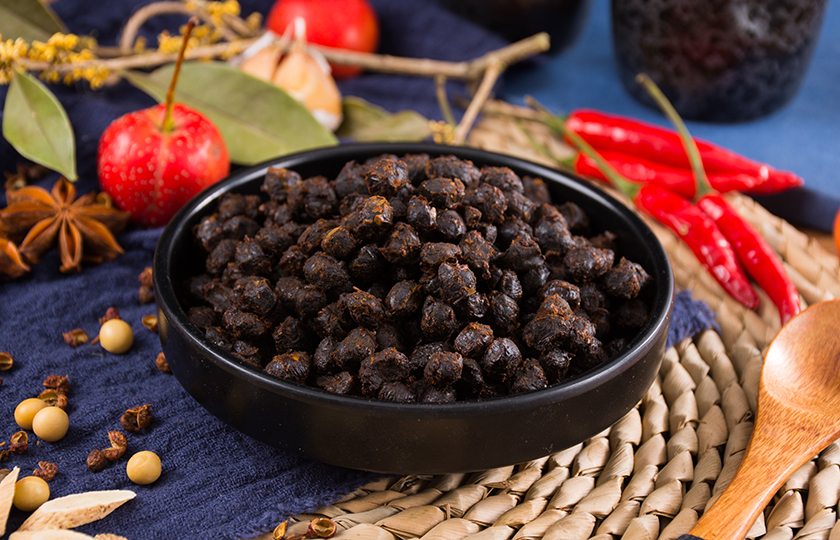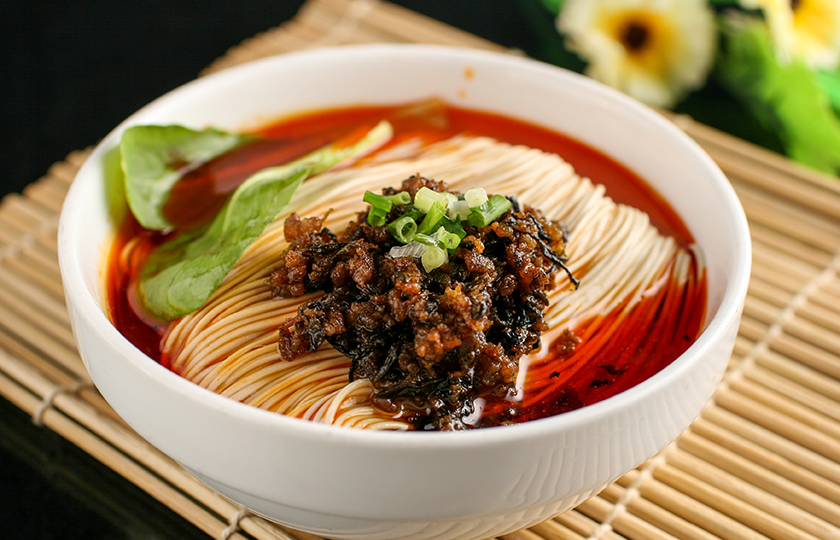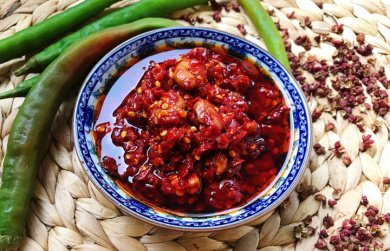Unleash the Flavor: How to Use Chinese Fermented Black Beans?

Fermented black beans are a shining pearl among traditional Chinese seasonings. Its unique salty and fragrant taste can infuse soul into dishes.
How can we use Chinese fermented black beans correctly to let it exert its wonderful flavor in cooking? Let's explore together.
How to use fermented black beans in cooking?
Chinese fermented black beans are a highly flavorful seasoning ingredient. I am very glad to introduce their applications in cooking.
The following are several main usage methods:
I. Direct use as a seasoning
Cold dishes: When making cold dishes, adding an appropriate amount of fermented black beans can add a unique flavor.
Mince or put whole fermented black beans in, and then add seasonings such as minced garlic, light soy sauce, and sesame oil and mix well.
Dipping sauce: Make fermented black beans into dipping sauce and eat with various fried or steamed foods.
For example, mixing fermented black beans with minced ginger and minced garlic and adding an appropriate amount of light soy sauce and vinegar can be used for dipping dumplings, spring rolls, etc.
II. Used in hot dish cooking
Stir-frying: Adding fermented black beans when stir-frying can enhance the flavor of dishes.
For example, for stir-fried romaine lettuce with fermented black beans, first stir-fry the fermented black beans until fragrant, then quickly stir-fry the romaine lettuce, and add an appropriate amount of salt and light soy sauce for seasoning.
Braising: When making braised dishes, fermented black beans can be used as an auxiliary seasoning.
For example, for braised eggplant with fermented black beans, first fry the eggplant until the surface is golden brown, add fermented black beans, soy sauce, sugar, water, etc. and braise until flavorful and the soup thickens before taking it out of the pot.
Stewing: Adding fermented black beans to stewed dishes can enrich the taste.
For example, for stewed spare ribs with fermented black beans, blanch the spare ribs and then put them in a pot together with fermented black beans, ginger slices, scallion sections, etc. and stew.
Add an appropriate amount of salt and other seasonings before taking out of the pot. The spare ribs will have the rich flavor of fermented black beans.
Steaming: Fermented black beans are very suitable for steaming dishes.
For example, for steamed sea bass with fermented black beans, after cleaning the fish, make several cuts on the fish body, put it on a plate, spread fermented black beans, shredded ginger, scallion sections, pour cooking wine and a little light soy sauce on it, steam it until cooked, and finally pour hot oil on it.
III. Making sauces and soups
Fermented black bean sauce: Can be used for spreading on bread, mixing with noodles or as a seasoning to match other dishes.
Stir-fry fermented black beans with chili peppers, garlic, onions, etc., and add an appropriate amount of salt, sugar, light soy sauce, oyster sauce and other seasonings to make fermented black bean sauce.
Fermented black bean soup: Adding fermented black beans to some soups can increase the flavor.
For example, for fermented black bean and tofu soup, cut tofu into small pieces and cook it into a soup with fermented black beans, laver, dried shrimps, etc., and add an appropriate amount of salt and sesame oil for seasoning. The taste is delicious.
Fermented black beans are a very versatile seasoning. Flexible use can make dishes more layered and flavorful.
Are fermented black beans the same as black beans?
In cooking, many people will be confused about fermented black beans and black beans. Are they the same?
I can clearly tell everyone that fermented black beans and black beans are not the same.
Black beans refer to the original black beans without fermentation treatment. They are picked after growing and maturing naturally and are obtained through simple drying and other treatments.
Fermented black beans, that is, fermented black beans, are products fermented by specific microorganisms under certain conditions. They need to be made through a series of complex processes such as screening, cleaning, steaming, koji making, and fermentation.
Specifically, fermented black beans and black beans have differences in the following aspects:
Flavor and taste:
Black beans have a hard taste and a light flavor with a faint bean fragrance when eaten directly.
Fermented black beans have a rich soy sauce fragrance and a unique fermented flavor. They have a mellow taste, delicious flavor, moderate saltiness, and may also have a spicy or sweet taste.
Nutritional value:
Black beans are rich in protein, dietary fiber, vitamins, etc., with high protein and low calories.
During the fermentation process of fermented black beans, the nutritional components are transformed and decomposed, making them easier to be absorbed by the human body. New bioactive substances are also produced, which have certain health care effects.
Cooking uses:
Black beans can be used to make soy products such as soy milk and tofu. They can be cooked or stir-fried directly, and can also be used for making soups and porridge.
Fermented black beans are mainly used for cooking and seasoning, such as stir-frying, braising, steaming, and making cold dishes, which can enhance the flavor of dishes.

Can fermented black beans be eaten raw?
Although fermented black beans have been fermented, they cannot be eaten raw as soon as they are taken. There are mainly several reasons:
Microorganism problem: There will be many microorganisms in the fermentation process, both good and bad. If eaten raw, those harmful bacteria may cause food safety problems.
Taste and flavor: The fermented black beans have a strong taste, salty and fragrant, and there is also a special taste of fermentation. Eating raw may not be accustomed to it, and even feel a bit difficult to swallow.
Digestion and absorption: Some components can be more easily absorbed by our body only after heating and cooking. If eaten raw directly, it is very likely to make the stomach uncomfortable and may even cause diarrhea.
So, for the sake of eating safely, deliciously and ensuring nutrition, we should not eat fermented black beans raw. We need to eat them by cooking methods.
Should you rinse fermented black beans?
When using fermented black beans to cook dishes, I usually rinse them first. are several benefits to doing this:
Remove dirt: During the fermentation process, it is inevitable to get a little dust or something. Rinsing makes it cleaner and more hygienic.
Adjust saltiness: Some fermented black beans may have added more salt during the pickling process. Rinsing off some salt will make the taste better.
Stimulate fragrance: Appropriate rinsing can make the aroma of black beans more prominent. When cooking, it is easier to absorb the taste of seasonings, and the taste will be more layered.
However, rinsing should also be moderate. Don't wash too hard, otherwise the good taste will be washed away. Just rinse a few times simply to remove floating dust and excess salt! The dishes made in this way are both delicious and healthy!

Do fermented black beans need to be refrigerated after opening?
After buying fermented black beans, sometimes if they cannot be eaten up within a short period of time after being opened, how should they be stored?
This is indeed a headache-inducing small problem. I personally have a little trick, which is to refrigerate them.
There are many benefits of refrigerated storage, as follows:
Extend shelf life: Refrigeration can slow down the growth of bacteria and effectively extend the shelf life of fermented black beans.
Maintain flavor and nutrition: Refrigeration can also help fermented black beans maintain their unique flavor and rich nutrition.
Prevent cross-contamination: Putting it in the refrigerator can also avoid "mixing flavors" with other ingredients or causing stomach upset.
How to do it specifically? I have a few tips:
Use a sealed container: Find a better sealed box, put the fermented black beans in it, and then put it in the refrigerator. In this way, neither air nor bacteria can enter, and the black beans can remain clean and fresh.
Consume as soon as possible: Although refrigeration can keep food fresh, it is still recommended that everyone eat it up as soon as possible. After all, the taste and nutrition of freshly made food are the best!
In this way, we don't have to be afraid of fermented black beans going bad, and we can enjoy delicious and healthy food at any time!
What do you eat with fermented beans?
The flavor of fermented beans is really special. When combined with various ingredients, it always brings us unexpected surprises.
Now I will share some practical and delicious combinations with you:
I. Meat combinations
Pork: Just like the steamed spare ribs with fermented black beans that we usually eat. The salty fragrance of fermented black beans and the deliciousness of pork are perfectly combined. Once you take a bite, you can't stop.
Chicken: Steamed chicken with fermented black beans is also a dish that every household loves to make. The aroma of fermented black beans makes chicken become more tender and juicy.
Fish: Is the fish a bit fishy? It doesn't matter. Add some fermented black beans. It can not only remove the fishy smell but also increase the fragrance. For example, steamed fish with fermented black beans or baked fish with fermented black beans are extremely delicious.
II. Vegetable combinations
Leafy vegetables: For vegetables like spinach and water spinach, add some fermented black beans and stir-fry. The taste will be upgraded immediately.
Root vegetables: Potatoes, carrots, etc. Stir-fried with fermented black beans can absorb the aroma of fermented black beans and taste more flavorful.
Mushrooms: Pleurotus eryngii and shiitake mushrooms matched with fermented black beans. The taste is really amazing. Every bite is a pleasure.
III. Soy product combinations
Tofu: Tofu is originally soft and tender. With the embellishment of fermented black beans, such as braised tofu with fermented black beans or tofu mixed with fermented black beans, the taste is superb!
Dried tofu: Dried tofu itself has chewiness. Add some fermented black beans. The combination of the two is just right. With unique flavor, it leaves a lasting aftertaste.
In short, fermented black beans are really super versatile and can make our dining table become rich and colorful. But remember, when cooking, control the amount well. Don't let fermented black beans steal the limelight of the main ingredients and make the dish too salty!























